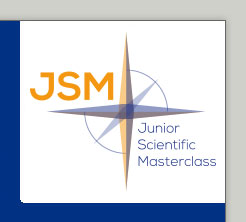Onderzoeksproject aanpassen
Projecten zijn uitsluitend aan te passen door bij het project behorende onderzoekers.
Geef via het uitrolmenu aan welke onderzoeker u bent. Nadat op u de button 'Edit project' heeft geklikt, wordt automatisch een e-mail verstuurd naar het e-mailadres van de onderzoeker die u heeft gespecificeerd.
In deze e-mail staat een link waarmee u het project kunt wijzigen.
Project properties
| Title | Correlation of clinical characteristics and treatment outcome with genetic alterations (EGFR, KRAS, ALK, BRAF, ROS1 and p53) in NSCLC stage IV. |
|---|---|
| Keywords | lung cancer molecular biology |
| Researchers |
Prof. dr. F. Griesinger |
| Nature of the research | Oncology Translational Research Lung Cancer Clinical Research |
| Fields of study | pulmonology oncology molecular biology |
| Background / introduction |
|---|
| Somatic mutations of oncogenic driver genes in non-small cell lung cancer have recently been described. In large Caucasian series, the incidence of activating EGFR mutations has been determined to be between 5 and 15%. ALK rearrangements have been observed in 3-5% of NSCLC, BRAF and ROS1 rearrangements are rare with an incidence of 1%. KRAS and p53 mutations are frequently observed in non-squamous non-small cell lung cancer, however the KRAS mutations are generally mutually exclusive with EGFR, ALK and ROS mutations. The relevance of p53 mutations in combination with EGFR mutations has not been conclusively elucidated. The incidence of the targetable mutations in the Oldenburg Region has not been studied rigorously. |
| Research question / problem definition |
|---|
|
To describe the incidence of the mutations delineated above. To correlate genetic alterations with the following patient’s characteristics: histology (adenocarcinoma, squamous cell carcinoma, large cell carcinoma, mixed histology), smoking status, i.e. never smoker, light smoker (10 pack year maximum and stop more than 15 years prior to diagnosis of lung cancer), ex-smoker (not fulfilling the criteria of light smokers), smoker): the smoking status is part of the primary patient history in case of the diagnosis of lung cancer and it is documented in the patient charts. age, gender, stage of disease (this data set documented in the patient charts and data bank) number of metastatic sites (the metastatic pattern is part of the documentation in the patient chart as well as in the data bank). Treatment outcome of 1st line therapy will be assessed relative to the molecular subgroups, including the type of mutation (EGFR mutations exon 19 vs. exon 21 vs. uncommon mutations, ALK rearrangements etc) and dependent on whether patients received targeted therapy or not. Endpoints are PFS of 1st line therapy and OS. |
| Workplan |
|---|
| In the Pius-Hospital, about 320 new lung cancer patients are diagnosed per year. Since 2010, the strategy of the hospital was to screen all patients with metastasized non-squamous NSCLC for molecular alterations, i.e. EGFR, ALK, ROS, BRAF, KRAS and p53. The clinical characteristics of the patients, which are “primary cases” of the lung cancer center, are documented in the patient charts as well as in the documentation system of the DKG (German Cancer Society) certified lung cancer center. Molecular pathology is performed by Hematopathology Hamburg, and the results are available in the charts of the patients, in the data bank. Treatment data are available from the charts as well as from the data bank of the lung cancer center. Endpoints for treatment results will be ORR, PFS and OS. Lung cancer patients stage IV from 2010 until 2013 will be identified, the patients that have molecular data will be identified and the correlations given above will be done. |
| References |
|---|
|
1. Volker Halbfass, Markus Falk, Regina Prenzel, Hans-Georg Dercken, Douglas Scriba, Markus Tiemann, Frank Griesinger. Incidence of molecular targets (EGFR-mutation, EML4-ALK, BRAF and KRAS) in metastatic NSCLC in a certified lung cancer hospital. WCLC Amsterdam 2011 (Poster Präsentation) P2.233 2. Halbfass V., Prenzel R., Scriba D., Willborn K.-C., Falk M., Hallas C., Griesinger F.1, Tiemann M. Incidence of EGFR, KRAS, BRAF, ALK, and P53 alterations in a cohort of 159 consecutively tested patients from a certified lung cancer center, correlation with clinical characteristics and treatment outcome. DGHO and WCLC 2013, accepted 3. Griesinger F., Halbfass V., Conradi I., Hallas C., Henke R.-P., Falk M., Tiemann M. Acquired resistance in NSCLC with EGFR mutation treated with TKI´s: Single center experience and treatment outcome. DGHO and WCLC 2013, accepted 4. Griesinger F., Falk M., Conradi I., Halbfass V., Reinhardt M., Kluge A., Willborn K.-C., Prenzel R., Scriba D., Henke R.-P., Eberhardt W.E.E., Hallas C., Tiemann M. Pathologic complete remission after induction chemotherapy and intercalated Erlotinib in EGFR-mutated adenocarcinoma stage IIIA: Case report. Accepted as Poster WCLC and DGHO 2013, to be submitted to Annals of Oncology 2013 5. Griesinger F., Prenzel R., Halbfass V., Scriba D., Willborn K.-C.: Second line chemotherapy exposure in a DKG-certified lung cancer center: Experience of 3 years, Poster DGHO 2013 6. Dansin E, Cinieri S, Garrido P, Griesinger F, Isla D, Koehler M, Kohlhaeufl M. MO19390 (SAiL): bleeding events in a phase IV study of first-line bevacizumab with chemotherapy in patients with advanced non-squamous NSCLC. Lung Cancer. 2012 Jun;76(3):373-9. doi: 10.1016/j.lungcan.2011.11.020. Epub 2012 Jan 10. 7. Crinò L, Dansin E, Garrido P, Griesinger F, Laskin J, Pavlakis N, Stroiakovski D, Thatcher N, Tsai CM, Wu YL, Zhou C. Safety and efficacy of first-line bevacizumab-based therapy in advanced non-squamous non-small-cell lung cancer (SAiL, MO19390): a phase 4 study. Lancet Oncol. 2010 Aug;11(8):733-40. doi: 10.1016/S1470-2045(10)70151-0. Epub 2010 Jul 23. |


